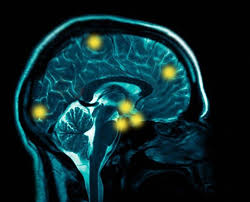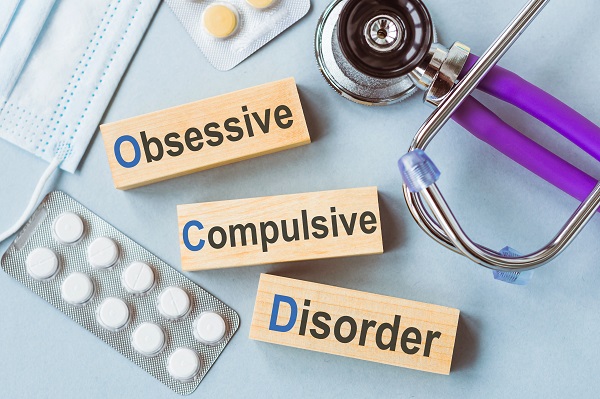Glutamate is a chemical that is found in the brain and plays an important role in learning and memory. However, for some people, glutamate can become a problem. This is known as glutamate OCD. Glutamate OCD can cause a lot of suffering for those who have it, but there are treatments available that can help. In this blog post, we will discuss what glutamate OCD is, its symptoms, and how to get help.
Contents
What Is Glutamate?

Glutamate is a neurotransmitter, which means that it helps to send signals between neurons. It is also an excitatory neurotransmitter, which means that it can help to increase the activity of neurons.
Glutamate is an amino acid that is found in the brain. It is involved in many important functions, including:
- learning and memory
- neurotransmission
- brain development
What Is OCD?
OCD is a mental health disorder that is characterized by obsessions and compulsions. Obsessions are unwanted, intrusive thoughts, images, or urges that cause distress. Compulsions are repetitive behaviors or mental acts that a person feels they must do to relieve the anxiety caused by the obsessions.
People with OCD often have very strict rules about how they do things. They may spend a lot of time doing things just right, or they may avoid certain objects or situations because they fear that something bad will happen if they don’t.
What Is Glutamate OCD?
Glutamate OCD is a type of OCD that is characterized by obsessions and compulsions related to glutamate. People with this condition may be obsessed with the idea that they are going to get sick if they eat food that contains glutamate. They may also have compulsions such as washing their hands over and over again or avoiding certain foods altogether.
Causes

The exact cause of OCD is unknown. However, it is thought to be caused by a combination of genetic and environmental factors.
It is believed that OCD runs in families, so there may be a genetic component. In addition, some research suggests that OCD may be triggered by stressful life events.
There is some evidence that OCD may be related to problems with the neurotransmitter serotonin. Serotonin is a chemical in the brain that helps to regulate mood. It is also thought to play a role in the development of OCD.
Symptoms
The symptoms of glutamate OCD can vary from person to person, but there are some common ones. These include:
- Avoidance of foods that contain glutamate
- Intrusive thoughts about getting sick from eating food with glutamate
- Extreme anxiety about eating food with glutamate
- Intrusive thoughts about glutamate
- Compulsions related to glutamate
- Avoidance of foods containing glutamate
- Excessive handwashing
- Checking food labels obsessively
- Spending a lot of time thinking about food
Side Effects

The symptoms of glutamate OCD can have a major impact on a person’s life.
- They may spend a lot of time thinking about food and their diet.
- Problems at work or school may arise, and it can be hard to maintain friendships and relationships.
- They may avoid social situations because they are afraid of eating food with glutamate.
- They may also miss work or school because of their compulsions. In severe cases, people with this condition may become housebound.
Treatment

Just like any other disorder, this subcategory also has options of treatment through therapeutic intervention or even self-help.
Therapy
There is no cure for OCD, but there are treatments that can help to reduce the symptoms. These include:
Cognitive-behavioral therapy (CBT): CBT is a type of therapy that helps to change the way you think about things and how you respond to them. It can be very effective in treating OCD.
Exposure and response prevention (ERP): ERP is a type of therapy that involves exposure to the things that trigger your OCD and then learning to resist the urge to do your compulsions.
Medication: Several types of medication can be used to treat OCD. These include antidepressants, anti-anxiety medications, and antipsychotics.
If you think you may have glutamate OCD, it is important to see a mental health professional for an evaluation. They will be able to diagnose you and come up with a treatment plan that is right for you.
Self-Help Tips
The first step is acknowledging that you have a problem. Once you have done that, you can start to make some changes in your life. Here are some things that may help:
Avoidance is not the solution: You may be tempted to avoid all foods that contain glutamate, but this will only make your OCD worse. It is important to face your fears and eat the foods that trigger your OCD.
Challenge your thoughts: When you have intrusive thoughts about getting sick from eating food with glutamate, challenge them. Remind yourself that there is no evidence that this will happen.
Take it one step at a time: Changing your behavior can be difficult. Start by taking small steps and gradually increasing the amount of contact you have with things that trigger your OCD.
Find a support group: There are many online and in-person support groups for people with OCD. This can be a great way to find others who understand what you are going through.
Conclusion
OCD can be a debilitating condition, but there is help available. If you think you may have this disorder, reach out for assistance from a mental health professional. With treatment, you can learn to manage your symptoms and further live a full life.
If you are looking for affordable Online OCD Counseling MantraCare can help: Book a trial OCD therapy session


